MEDIA MENTIONS : DMS AND DHMC IN THE NEWS
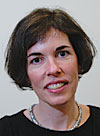
|
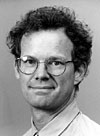
|
Among the people and programs coming in for prominent media coverage in recent months were a pair of studies about the effect of smoking in movies on teens' propensity to take up the habit. First, the publication of the two papers attracted wide media attention. For example, the Washington Post reported: "Madeline Dalton of Dartmouth Medical School, lead author of [one] study, said she was surprised by the strength of the connection between movies and teen smoking." Then, a couple of months later, 24 state attorneys general cited the work in a joint letter to the president of the Motion Picture Association of America, asking for a reduction in onscreen smoking; that inspired another flurry of press coverage. A story about the action in the Los Angeles Times noted that "James Sargent, a pediatrician who was the lead author of the [other] Dartmouth study, said if studios are willing to recut movies' endings because focus groups don't like them, they should be willing to cut smoking to protect children." See page 3 for details on the two studies.
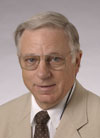 BBC News crossed the Atlantic to research a story
about growing evidence that "bedwetting could
be linked to breathing problems.
. . . Dr. Dudley Weider of Dartmouth-
Hitchcock Medical
Center in New Hampshire has
followed over 300 children with
bedwetting problems who had
surgery for airway obstruction.
He said a quarter stopped wetting
their beds virtually straight away. Another
50% stopped within six months."
BBC News crossed the Atlantic to research a story
about growing evidence that "bedwetting could
be linked to breathing problems.
. . . Dr. Dudley Weider of Dartmouth-
Hitchcock Medical
Center in New Hampshire has
followed over 300 children with
bedwetting problems who had
surgery for airway obstruction.
He said a quarter stopped wetting
their beds virtually straight away. Another
50% stopped within six months."
The Dartmouth Atlas of Health Care continues to make waves in the world of health policy. Newsweek noted that "if you live in Boise, Idaho, for example, you're five times more likely than people in Terre Haute, Ind., to have back surgery, according to Dartmouth Medical School's Atlas of Health Care." And BusinessWeek said that "not surprisingly, money often comes into the equation. 'The system does not reward doctors for talking. It rewards them for doing,' says Megan Cooper, editor of the Dartmouth Atlas project." And Reader's Digest said one outcome of Oregon's law allowing physician-assisted suicide "has been expanded hospice care. Statistics from the 1999 Dartmouth Atlas of Health Care showed that while most Americans still die in hospitals, in Oregon over half die at home or in a hospice."
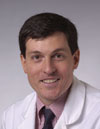 The Spokane Spokesman-Review quoted an East
Coast expert in a story on heartburn. "What can
you do about heartburn if you
don't want to take a pill?
'Lifestyle modifications can be
an effective first step in the
management of heartburn,' says
Dr. Douglas Robertson, an assistant
professor of medicine at Dartmouth
Medical School." He
suggested "avoiding foods that promote acid re-
flux, like caffeine and alcohol . . . eating smaller
meals and avoiding late-night snacks [and] . . .
smoking cessation and weight loss."
The Spokane Spokesman-Review quoted an East
Coast expert in a story on heartburn. "What can
you do about heartburn if you
don't want to take a pill?
'Lifestyle modifications can be
an effective first step in the
management of heartburn,' says
Dr. Douglas Robertson, an assistant
professor of medicine at Dartmouth
Medical School." He
suggested "avoiding foods that promote acid re-
flux, like caffeine and alcohol . . . eating smaller
meals and avoiding late-night snacks [and] . . .
smoking cessation and weight loss."
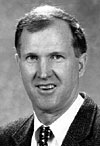 A recent clinical study—of whether finasteride, a
drug used to slow baldness, might also prevent
prostate cancer—was halted
early because the results appeared
so positive. But there was
a confounding twist. As CNN
put it: "While the men who
took finasteride were diagnosed
with fewer cases of the disease,
they had more high-grade prostate
cancers, which typically are more aggressive
than other forms. . . . Dr. John Wasson, director of the
Center for Aging at Dartmouth Medical School
and a member of the study's safety monitoring
committee, said the tumor findings raised a number
of questions: 'What really is finasteride doing
here? Is it a promoter of mean types of cancer, or
a suppressor of meaningless types?'"
A recent clinical study—of whether finasteride, a
drug used to slow baldness, might also prevent
prostate cancer—was halted
early because the results appeared
so positive. But there was
a confounding twist. As CNN
put it: "While the men who
took finasteride were diagnosed
with fewer cases of the disease,
they had more high-grade prostate
cancers, which typically are more aggressive
than other forms. . . . Dr. John Wasson, director of the
Center for Aging at Dartmouth Medical School
and a member of the study's safety monitoring
committee, said the tumor findings raised a number
of questions: 'What really is finasteride doing
here? Is it a promoter of mean types of cancer, or
a suppressor of meaningless types?'"
The Miami Herald looked north for commentary on the crisis brewing in Florida regarding the price of health insurance, citing a 10-year study of disparities in health-care costs. "Elliott Fisher, the Dartmouth physician, says doctors aren't consciously running up big tabs. 'Most physicians are trying to do a good job. They're under the assumption that doing more tests, having more office visits, makes for better care.' About 80% of seniors prefer to die at home, says Fisher, 'but their wishes don't make any difference.' The only factor in Dartmouth's 10-year study that predicts whether a person will die in a hospital is the number of beds in the area."
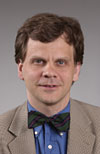 "Cord-Blood Controversy: Some parents are
paying more than $1,300 to bank their babies'
umbilical-cord blood in case a transplant
is needed later in life," noted a recent
article in Newsweek. "There are also public
banks that collect cord blood in the United
States free of charge. The blood isn't saved
for the donor's family, but
instead made available to
patients lucky enough to
find a genetic match. 'In
ideal scenarios, we should
use cord blood for public
banks, where it can actively
save lives,' says Dr.
Zbigniew Szczepiorkowski, who chaired the Cellular
Therapy Standards Committee for the
American Association of Blood Banks." He
is a DMS assistant professor of pathology.
"Cord-Blood Controversy: Some parents are
paying more than $1,300 to bank their babies'
umbilical-cord blood in case a transplant
is needed later in life," noted a recent
article in Newsweek. "There are also public
banks that collect cord blood in the United
States free of charge. The blood isn't saved
for the donor's family, but
instead made available to
patients lucky enough to
find a genetic match. 'In
ideal scenarios, we should
use cord blood for public
banks, where it can actively
save lives,' says Dr.
Zbigniew Szczepiorkowski, who chaired the Cellular
Therapy Standards Committee for the
American Association of Blood Banks." He
is a DMS assistant professor of pathology.
The debate over how widespread the U.S. smallpox-vaccination program should be continues to occupy the attention of immunization experts. That means the press continues to turn to the Dartmouth faculty member who chairs the federal Immunization Advisory Committee. "Offering [the vaccine] to medically trained people within a medical setting seemed a manageable risk to many on the advisory committee," wrote USA Today, "but widening the program dramatically did not. 'The committee has believed from the beginning that we need to put safety above and beyond all other concerns,' said committee chair John Modlin, a professor at Dartmouth Medical School. A pause in the smallpox program, he said, 'will allow us to buy some time and better understand both sides of the equation—the safety and the threat.'"
 From BBC to the Pittsburgh Post-Gazette, the
media picked up word of another beneficial
effect from aspirin. Said
the latter outlet, "Salicylic
acid, the major byproduct
of aspirin, disrupts two key
genes of staph bacteria.
. . . 'It may be that an aspirin
a day is better for you
than we thought,' said
Ambrose Cheung, a microbiologist at Dartmouth."
See page 16 for more on the study.
From BBC to the Pittsburgh Post-Gazette, the
media picked up word of another beneficial
effect from aspirin. Said
the latter outlet, "Salicylic
acid, the major byproduct
of aspirin, disrupts two key
genes of staph bacteria.
. . . 'It may be that an aspirin
a day is better for you
than we thought,' said
Ambrose Cheung, a microbiologist at Dartmouth."
See page 16 for more on the study.
An Associated Press report on summertime hazards said that "some of the most serious injuries come from the bane of many kids' lazy summer days—mowing the lawn. Often, kids will get seriously injured when their feet slip beneath the blades of a lawn mower as they mow hills, said Dr. William Boyle, a member of the poison and injury prevention section of the American Academy of Pediatrics." Boyle is a professor of pediatrics at Dartmouth.
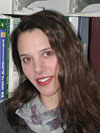 "A Dartmouth Medical School study shows
that even small amounts of arsenic in drinking
water may make people more vulnerable
to cancer," read the lead on a story in Nevada's
Reno Gazette-Journal, adding that a city
in the Reno area "has the nation's highest
levels of the metal. . . . 'We
were primarily interested
in uncovering the mechanism
to explain how arsenic
causes cancer,' said
Dr. Angeline Andrew, the lead
author of the study, published
in the International
Journal of Cancer. 'This study supports the
hypothesis that arsenic may act as a cocarcinogen—
not directly causing cancers,
but allowing other substances, such as cigarette
smoke and ultraviolet light, to cause
mutations in DNA more effectively.'"
"A Dartmouth Medical School study shows
that even small amounts of arsenic in drinking
water may make people more vulnerable
to cancer," read the lead on a story in Nevada's
Reno Gazette-Journal, adding that a city
in the Reno area "has the nation's highest
levels of the metal. . . . 'We
were primarily interested
in uncovering the mechanism
to explain how arsenic
causes cancer,' said
Dr. Angeline Andrew, the lead
author of the study, published
in the International
Journal of Cancer. 'This study supports the
hypothesis that arsenic may act as a cocarcinogen—
not directly causing cancers,
but allowing other substances, such as cigarette
smoke and ultraviolet light, to cause
mutations in DNA more effectively.'"
The Los Angeles Times recently cited a Dartmouth study on a subject that is popularly known as "chemo brain,"noting that "at Dartmouth Medical School, psychologist Tim Ahles and his team studied 71 men and women who had had chemotherapy for lymphoma or breast cancer and 57 similar people who had received only surgery and localized radiation for those cancers. Five years after treatment, all were cancer-free, but those treated with chemotherapy fared worse on paper-andpencil cognitive tests than those who did not get chemotherapy."
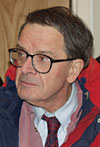 Nobel Laureate Michael Bishop—in an interview
on NPR's "Talk of the Nation"—cited
a DMS faculty member as having had a
seminal effect on his career. "When I returned
to medical school," Bishop said, "I
took an elective course about viruses. . . . I
was fascinated by the ability
of these truly simple devices
to seduce the cell
into replicating them. . . .
I hooked up with an instructor
at Harvard Medical
School, Elmer Pfefferkorn,
who later became chair of
microbiology at Dartmouth, and worked in
my spare time during the third year of medical
school studying a virus—trying to figure
out a particular aspect of how it replicated.
That's what started it."
Nobel Laureate Michael Bishop—in an interview
on NPR's "Talk of the Nation"—cited
a DMS faculty member as having had a
seminal effect on his career. "When I returned
to medical school," Bishop said, "I
took an elective course about viruses. . . . I
was fascinated by the ability
of these truly simple devices
to seduce the cell
into replicating them. . . .
I hooked up with an instructor
at Harvard Medical
School, Elmer Pfefferkorn,
who later became chair of
microbiology at Dartmouth, and worked in
my spare time during the third year of medical
school studying a virus—trying to figure
out a particular aspect of how it replicated.
That's what started it."
"Medicare cures prove easy to prescribe, tricky to predict" wrote the Wall Street Journal about federal health-care funding. "Predicting the speed and direction of medical progress has proved impossible," noted the article, "and it hasn't been much easier to predict how patients and the health-care industry will react to governmental fine-tuning. 'It's policy wonks and politicians trying to pull levers that control things that they can't control,' says Jonathan Skinner, a Dartmouth health economist."
If you would like to offer any feedback about this article, we would welcome getting your comments at DartMed@Dartmouth.edu.
